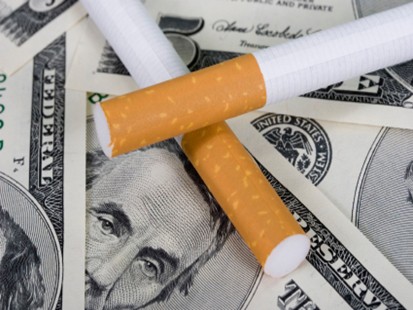As Illinois faces a $2.7 billion hole in its Medicaid budget, the AP reports that legislators have voted to cut benefits in an effort to bring program costs under control:
Rep. Sara Feigenholtz, D-Chicago, said the Medicaid program will fall apart without fast action. Helping the state’s poor in the long run requires cutting back now, she said.
“I know it seems ironic, but this is the only way we can accomplish that,” Feigenholtz said.
The measure passed 94-22 and went to the Senate, where it was approved on a 44-13 vote. The next stop is Gov. Pat Quinn, who supports the proposal.
Critics of efforts to rein in Medicaid spending however charge that the volume of meaningful cuts approved by the legislature is insufficient, with the Illinois Policy Institute saying this morning that only $1.6 billion in “material cuts” were achieved.
Meanwhile, Illinois Democrats continue to look to a cigarette tax increase to cover Medicaid costs, with the AP report indicating that some Illinois Republicans may be willing to support the measure:
House Minority Leader Tom Cross, R-Oswego, said Thursday evening that the depth of Medicaid cuts had convinced some of his colleagues to agree to the cigarette tax increase. “I think you’ll see a complete package pass,” Cross said.
This is despite indications that already-noticeable levels of cigarette smuggling from lower-tax states into Illinois, and gradual reductions in the rate of smoking amongst the general population, make revenue estimates associated with the proposed tax hike intended to fund the Medicaid shortfall shaky.
As noted by Reason Magazine’s Peter Suderman writing for The Daily:
Illinois already shows signs of both high smuggling and rapid declines in smoking. A 2010 study by the University of Chicago at Illinois sampled littered cigarette packs throughout the Windy City and found that 75 percent came from outside locales — a figure that potentially represents a lost $120 million a year in tax revenue for the city. Meanwhile, state smoking rates have dropped from nearly 25 percent in 1996 to a little less than 17 percent in 2010.
Furthermore, Gov. Quinn– the main proponent of the proposed cigarette tax increase– has been touting a revenue projection that does not tally with previous estimates of what revenue would be derived from the $1 per pack boost that is currently being considered. According to Suderman:
The anti-smoking advocacy group Campaign for Tobacco Free Kids recently estimated that a $1 increase in the state smoking tax would raise a little less than $300 million — leaving the governor’s office at least $37 million short.
Cigarette tax increases generally have a poor track record of delivering the revenue estimated by advocates. According to the National Taxpayers Union, fewer than a quarter of all increases between 2003 and 2007 ultimately met revenue projections.
If the cigarette tax increase that Gov. Quinn is proposing fails to pass, legislators may need to take a closer look at Medicaid reforms.

COMMENTS
Please let us know if you're having issues with commenting.